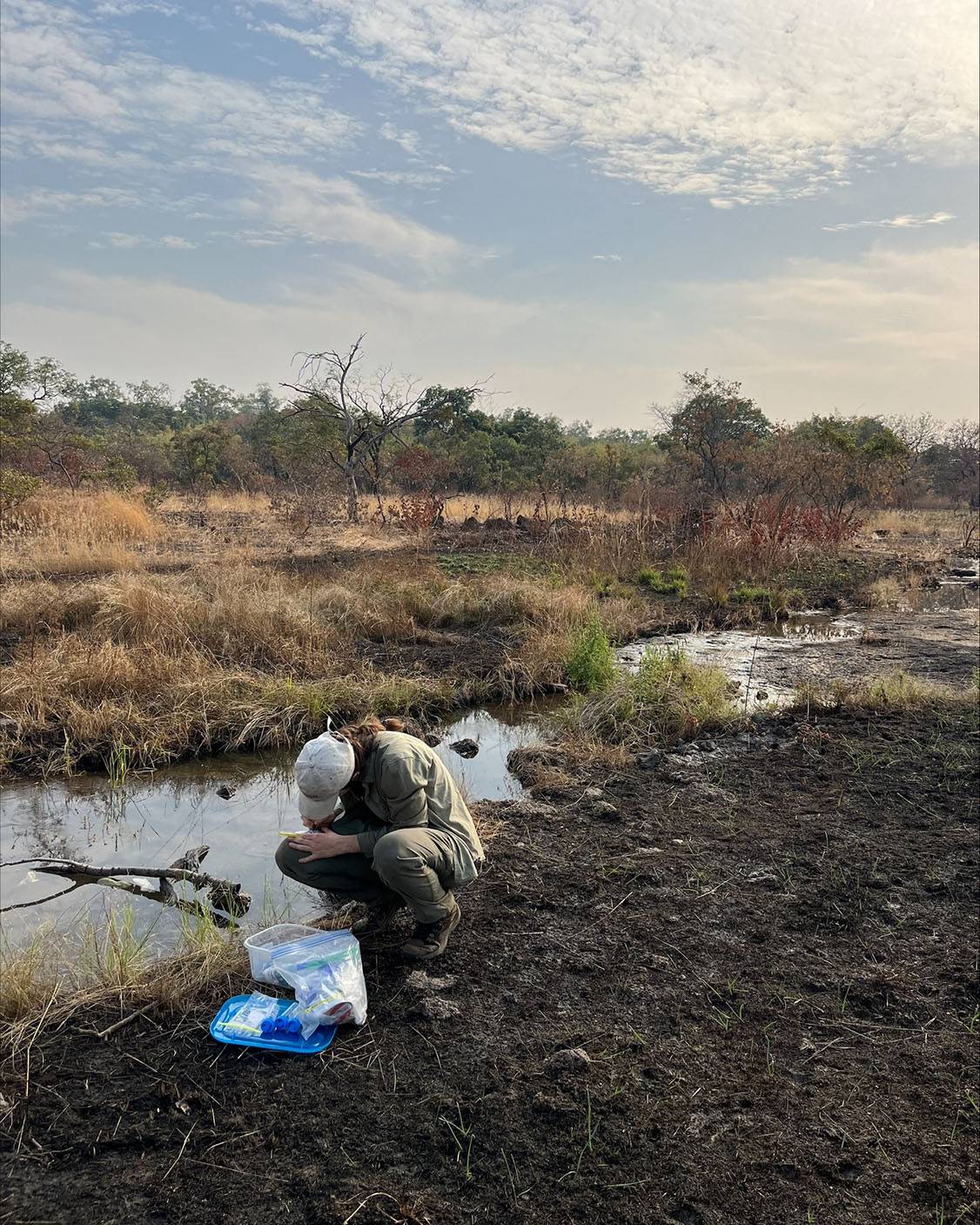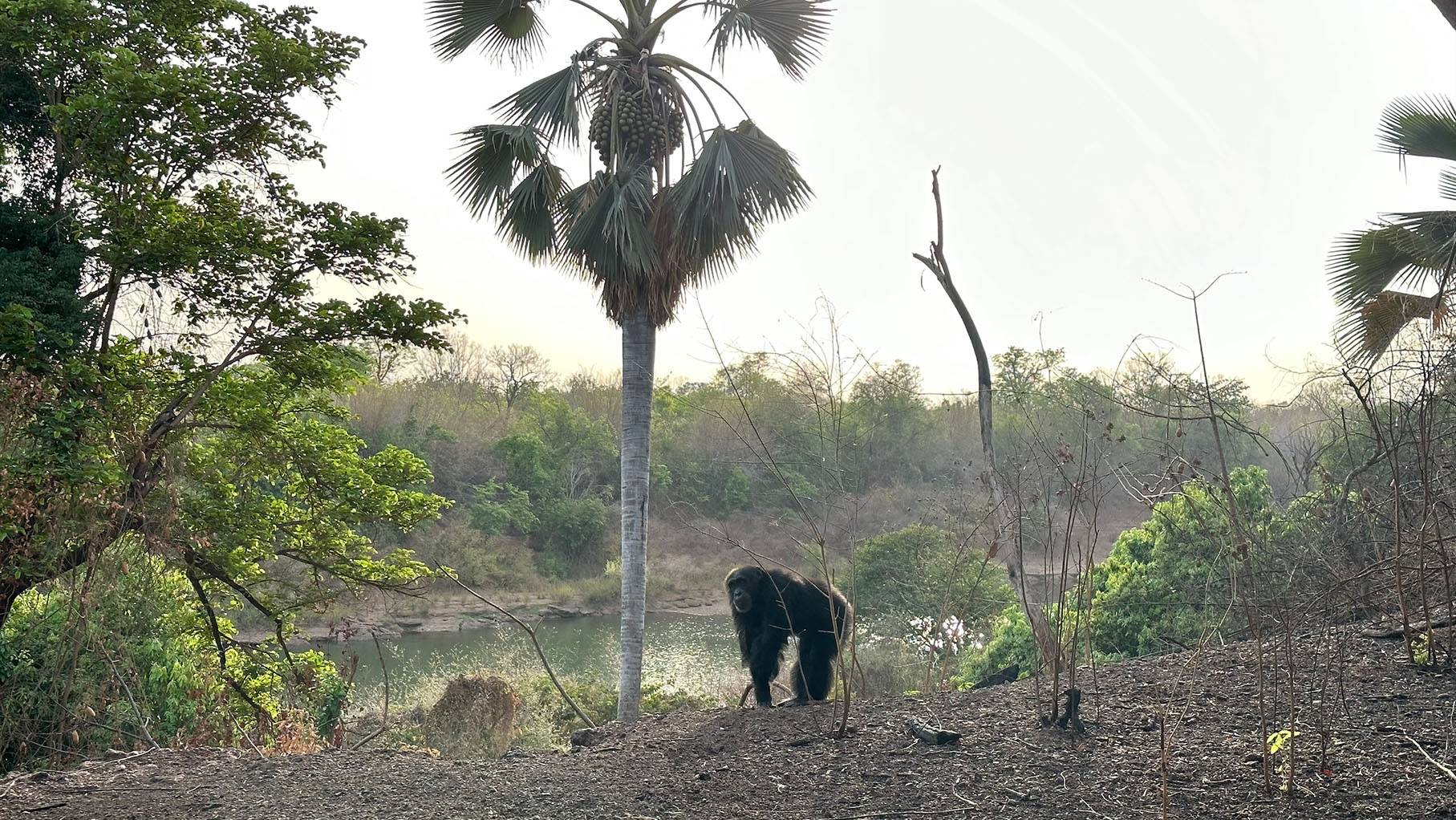
Katie Gerstner, a fourth-year doctoral student in applied anthropology at Texas State University, has been awarded a research grant from the Primate Society of Great Britain (PSGB), the UK’s national primatological society that promotes research into all aspects of primate biology, conservation, and management.
Katie Gerstner’s path to anthropology was unexpected.
“I actually fell into anthropology and didn’t take a single class in it during undergrad,” Gerstner said. “But I knew I wanted to be a scientist researching animals and to go to graduate school. My focus on primates started after graduation.”
During her senior year, she attended a biology symposium where a primatologist presented research on chimpanzee bipedalism in Uganda. Afterward, Gerstner inquired about research opportunities and was eventually hired as assistant director of the speaker’s chimpanzee research project.
“I moved to Uganda that fall,” she said. “That experience made me pivot to anthropology because so many chimpanzee researchers and advisors were in the field, and I found the work incredibly rewarding.”
Researching conservation and chimpanzee health

At TXST, Gerstner studies wildlife conservation methods and savanna chimpanzee behavior and health to better understand how humans and critically endangered chimpanzees coexist. Her work has implications not only for wildlife conservation but also for public health policy in West Africa.
“Conservation can be complicated because it’s about people as much as it is about animals,” she said. “When it comes to endangered species, there are always multiple stakeholders involved.”
Her research focuses on chimpanzee populations in Senegal, where most wild chimpanzees live outside national parks and historically coexist peacefully with local communities. However, a recent gold mining boom has led to significant population growth in the region, raising concerns about its impact on chimpanzees.
“My dissertation investigates whether this influx of people is negatively influencing the health of the apes, particularly through the transfer of harmful pathogens and microbes into their habitat,” she said.
To study these effects, she analyzes bacteria species and their abundances in chimpanzees’ gut microbiomes.
“DNA sequencing allows us to unlock the code of life,” she explained. “It helps us understand how genes work, what makes individuals unique, and how to identify and treat illnesses more effectively. For my work, it provides crucial insights into the health of these chimpanzees.”
Gerstner’s groundbreaking work on savanna chimpanzee microbiomes is the largest study of its kind in hot, dry habitats. While most wild chimpanzee research focuses on East African forest populations, her study helps expand understanding of this endangered species’ full biology and ecological needs.
The PSGB grant will help fund Gerstner’s laboratory work, specifically the costs of DNA sequencing chimpanzee fecal samples.

Recognized for excellence
In addition to the PSGB small research grant, Gerstner’s academic achievements include the Small Research Grant from Primate Conservation Incorporated, the Love of Learning Award from Phi Kappa Phi, the Doctoral Research Support Fellowship from TXST’s Graduate College, and the Doctoral Merit Fellowship from The Graduate College. She has also received the John Michael Kilby Anthropology Scholarship.
Gerstner serves as a doctoral teaching assistant in the Department of Anthropology and is an executive board member of the American Society of Primatologists, where she chairs the Media and Engagement Committee.
A wildlife photography enthusiast, one of Gerstner’s photos of a chimpanzee was published in Apes on the Edge by Jill Pruetz, Ph.D., professor in the Department of Anthropology at TXST.
Looking ahead
Once Gerstner defends her dissertation in Spring 2026, she aspires to work in wildlife protection and environmental conservation, collaborating with governments or NGOs on public policy and scientific research.
Gerstner attributes the success of her PSGB grant application to careful attention to the organization’s values.
“Word choice is critical in applications with strict word counts,” she said. “This society values local collaborations and inclusivity, and I emphasized my work with women-led projects and Senegalese primatologists. Learning French to communicate with my team and local authorities was also an important step.”
She encourages other aspiring grant applicants to be proactive and strategic.
“Reach out to previous awardees or grant organizations for advice on formatting and materials — it can save you hours,” she said. “Also, focus on highlighting local collaborations and efforts to promote inclusion.”